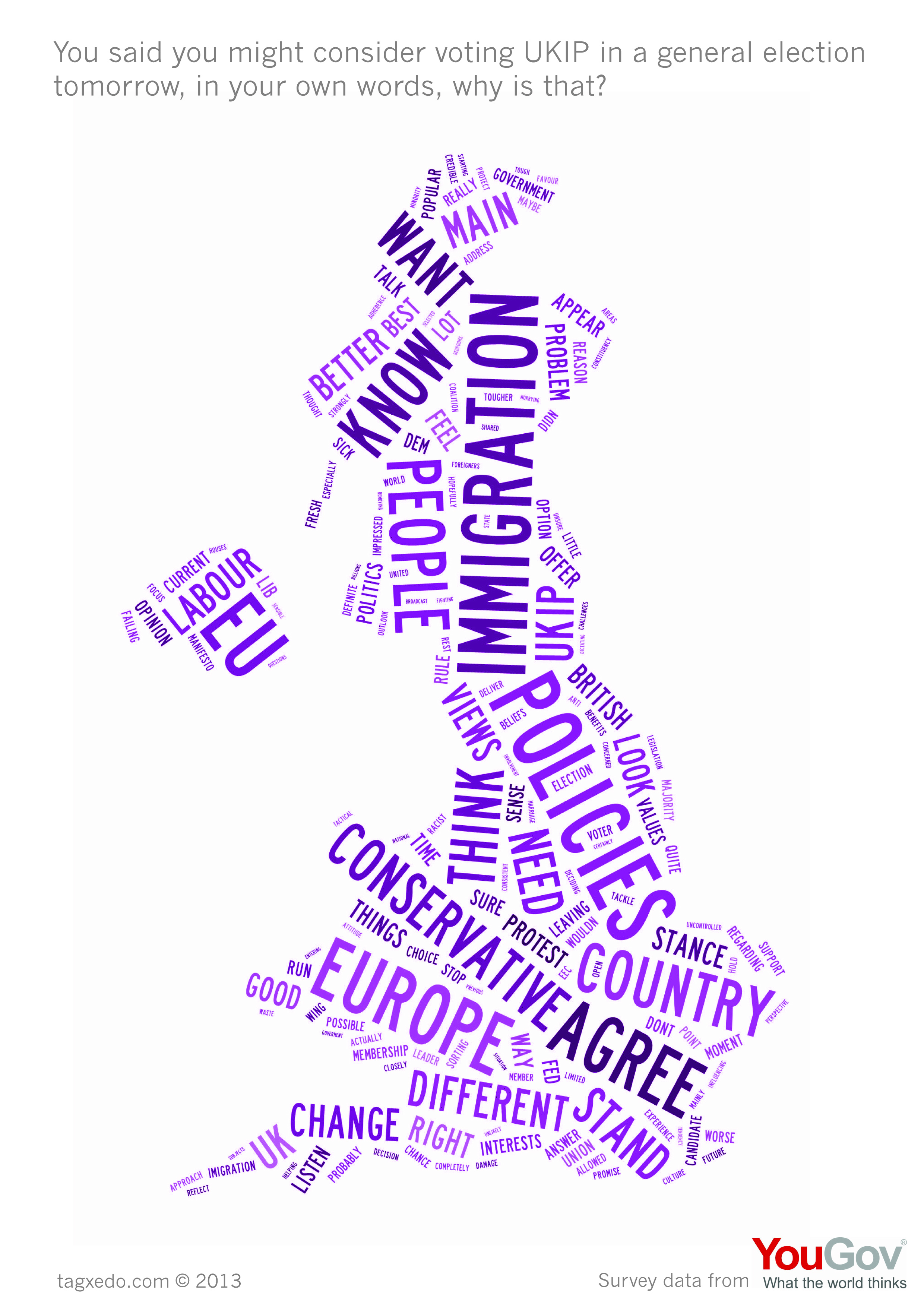Desire to reduce immigration and get Britain out of the EU are top issues driving voters to UKIP
Results continue to come in, but so far it’s clear that UKIP is set to make major gains in today's local elections: at the time of writing, UKIP has won 42 council seats, Labour has gained 30 and the Conservatives have lost 66. Labour has also won the by-election in South Sheilds for David Miliband's former seat - a seat the party has held since 1935 - but UKIP pulled off a second place showing, pushing Tories into third there.
New YouGov research examines the motivations of Britons who say they would vote UKIP in a general election. More than three-quarters (76%) cite a desire to see immigration to Britain reduced, and 59% say a desire to see Britain leave the European Union – the primary objective of the party at its founding in 1991 – is what made them vote UKIP.
The opportunity to "protest" the main parties is the third most important factor for voters choosing UKIP. Almost half (47%) say dissatisfaction with the other main parties makes a vote for UKIP attractive, while a quarter (25%) cite disappointment with David Cameron and the government.
Earlier today Tory MP Sarah Wollaston told the BBC that the UKIP surge comes down to the appeal of its leader, Nigel Farage.
But a positive impression of Farage, towards whom 17% of the general population have positive feelings - putting him ahead of Nick Clegg (15%), but behind Ed Miliband (22%) and David Cameron (33%) - is only cited as a reason for voting UKIP by 15% of UKIP voters.
Britons were asked in the same survey to rate each party on a scale of one to ten, according to whether they would definitely (represented by a score of 10) or never (represented by a score of 0) consider voting for them.
36% of British adults say they would never consider voting UKIP – making UKIP least popular, but not putting it far off from the Conservatives, for whom a third (33%) say they would never consider voting. 32% would never consider voting for the Liberal Democrats and 23% say the same for Labour.
Additionally, voters who would not completely rule out UKIP were asked to write in why they might consider voting for the party. In their responses, many Britons seem moved by largely the same issues as those who already plan on voting UKIP, although to a significantly lesser extent.

Not yet a member of YouGov? Make your opinion count by joining today!







